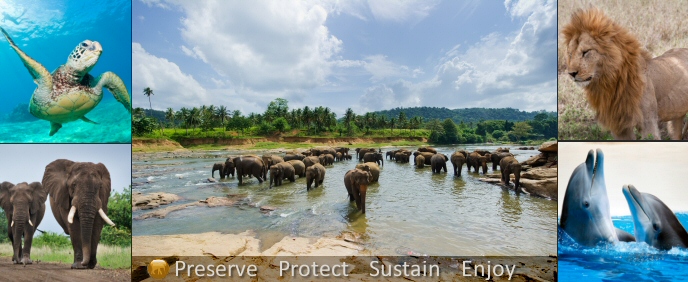
Eco Tours in the Galapagos - Sustainable Tourism & Conservation Laws
The state of conservation law in the Galapagos Islands is not as cut and dry as one might expect. After all, it is the birthplace of the theory of evolution and one of the most isolated natural laboratories on natural selection. However, there have been some very basic hurdles in the way of conservation law over the years, causing conservation laws to stagnate. Recently, there have been some major steps forward with conservation in the Galapagos that have done well to codify certain environmental laws on the islands.
The most important of these recent changes was the 1998 ratification of the Galapagos Conservation Law. This law is considered by many to be the most pivotal law in the conservation history of the Galapagos Islands, though it was ratified under significant opposition. The law approaches the conservation of the islands in a number of ways. First, the law significantly expands the protections given to the marine landscape. By both expanding the marine sanctuary boundaries and forbidding commercial fishing in protected waters, the Galapagos Conservation Law takes a much more holistic view toward conservation than was once seen on the islands.
Another step the law takes is to approach the issue of profiteering on the wildlife and natural landscape. There used to be a lot of problems with people who would move to the island and quickly apply for residency so they could run easy tours on the island, capitalizing on the large tourist numbers. This money would then be taken offshore, not used in the local economy. New regulations set forth by the Galapagos Conservation Law state that a person must live on the islands for at least five years before applying for residency. Also, half of all money earned by the tourist industry must be reinvested to conservation initiatives. This has gone a long way toward eliminating profiteers.
Aside from this major law, there are a few absolute rules that tourists must observe while visiting the islands. Most of them are fairly common-sense rules like cleaning up after yourself and not poaching wildlife, but there are a few more obscure ones to keep in mind. First, you are not allowed to travel on in the park unless you are accompanied by a licensed, local guide. Second, you are not to deface the rocks on the island, and you can be fined if you purchase souvenirs that are made out of plants or animals from the island.
Despite these regulations, there is still a lot to do and see on the Galapagos Islands. Not only are the islands themselves attractive and full of amazing landscapes, but the wildlife is some of the most unique on the Earth. Due to the remote orientation of the islands with respect to the mainland, the Galapagos is widely recognized as an intriguing window into the mechanisms of natural selection. Tourists from all over the world come here every single year to see the unique plant and animal life, all of them fortunate enough to see animals that exist nowhere else on the planet. Since there are no large predators on the islands, the animals that live here generally act tamer than most people are used to. This means that tourists will have an unparalleled ability to get amazing pictures while on the island of some truly unique animals. This also means that there will be a number of opportunities for tourists to be lured into trying to pet or physically interact with the animals. It's important that all tourists understand that physical interaction with the animals is strictly prohibited.
For tourists looking to holiday on the Galapagos Islands, there are some truly amazing things to do. Anyone visiting the Galapagos needs to have respect for what they represent, and they should have an understanding for why the rules that are in place are so important. These islands are some of the few truly unique places that are yet left on the Earth, and they deserve a special regard for that fact. For the majority of people that can easily follow these guidelines during their visit, a trip to the Galapagos can be a special mix of ecological adventure and education that simply cannot be matched.

